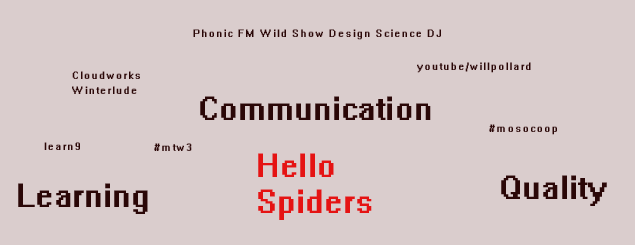The MOOC moment at BETT
This post will get rewritten several times. Still too early to make much sense of all of BETT but I'm now back in Exeter and have taken some time to look at blog posts etc. I missed the opening speech by Michael Gove but have now had time to read it. Last year what I gathered from the Guardian was that a) the MOOC idea could not actually work out as claimed b) the MOOC is commercial and not that welcome in proper universities. At BETT it seems clear enough that the tech is working. It may end up as commercial if not much else happens. So I think the critique should move on a bit.
A few things not as expected. The Futurelearn session was by invitation only. The people on the OU stand suggested that if there was space I might get in but it turned out the sponsors had a restricted list of job descriptions that were allowed. So I missed that and the next one on how to monetize the MOOC.
On the show floor there was a solid demo from Cambridge University Press of a MOOC at GCSE level on Computing. Limited social media style around this. There is just an "ask the teacher" feature with a few days delay. Based on short conversation it seems there is a business plan, the fees from the GCSE exams may cover some of the costs, even the adults who are just interested. CUP may have a book in the autumn but it may not be in print. So Cambridge may be keeping a distance from Futurelearn but they have some feedback to assess.
Gove sees a limited role for the UK government-
Innovative, transformative educational technology - like the products and ideas showcased at this exhibition - is already transforming education; has already transformed education; in ways that we could barely predict 2 years ago, and could never have imagined 50 years ago.
This technological change is - by its very nature - disruptive, endlessly innovative and driven from the bottom up.
So precisely the wrong way to react to the transformative opportunities offered by educational technology would be for government to try to dictate, from the centre, every last detail of how schools should respond.
Government regulation cannot keep pace with the scale of change technology brings. When I spoke here 2 years ago Instagram and Snapchat had barely been heard of, now they’re mainstream. How can government departments legislate for and regulate innovations which develop at such speed?
So, just as we’ve done in the curriculum, we are determined to give schools and teachers the freedom and autonomy to keep their eyes open for the next opportunity, the next development; and to recognise and react to it, when it comes.
No government, for example, could ever have imagined the impact that Sebastian Thrun is having on 21st century education.
However, in France there is state support for FUN from MINISTÈRE DE L'ENSEIGNEMENT SUPÉRIEUR ET DE LA RECHERCHE. Some of the courses are in English. I can't tell if they are aimed at students, general public, or schools. Seems to include a range of universities. It will be interesting to see how this works out.
Open Classrooms on the French stand C98 , they are independent but can also talk about FUN. Something MOOCish will continue.
